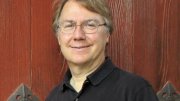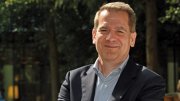David Keith founded a company, Carbon Engineering, in 2009, while he held the Canada Research Chair in energy and the environment at the University of Calgary, to capture carbon and use it to develop low-carbon fuels, among other projects. (He launched it with $3.5 million from a group of angel investors that included Bill Gates.) The pilot plant, which he expects to be operational by next summer, should capture a modest 1,000 tons of carbon per year, roughly the amount generated by the activities of 50 average Americans in 12 months. Eventually the company expects to sell the CO2 it captures for applications such as enhanced oil recovery (oil companies would use the gas to force oil out of the ground) and the production of algae-based biofuels. A commercial-scale plant built with this technology might capture up to 100,000 tons of CO2 a year, but Keith stresses that his is a small company with a new technology. “Anyone who knows anything about carbon and energy knows that there isn’t any one magic bullet,” he says. “We’re not trying to solve the world’s climate problems.”
He is careful to separate his efforts on behalf of his company from his academic work. Not only does he see carbon capture and solar geoengineering as technologies with very different risks and costs, he’s also conscious of critics who have suggested that he aims to profit from his aerosol-reflector research. In fact, he has lobbied in Washington to outlaw patents on sun-blocking technologies. Because such global-scale climate solutions can have a dramatic effect on the planet, Keith says, “I think this is a bit like nuclear weapons, and there should be no for-profit work.”










